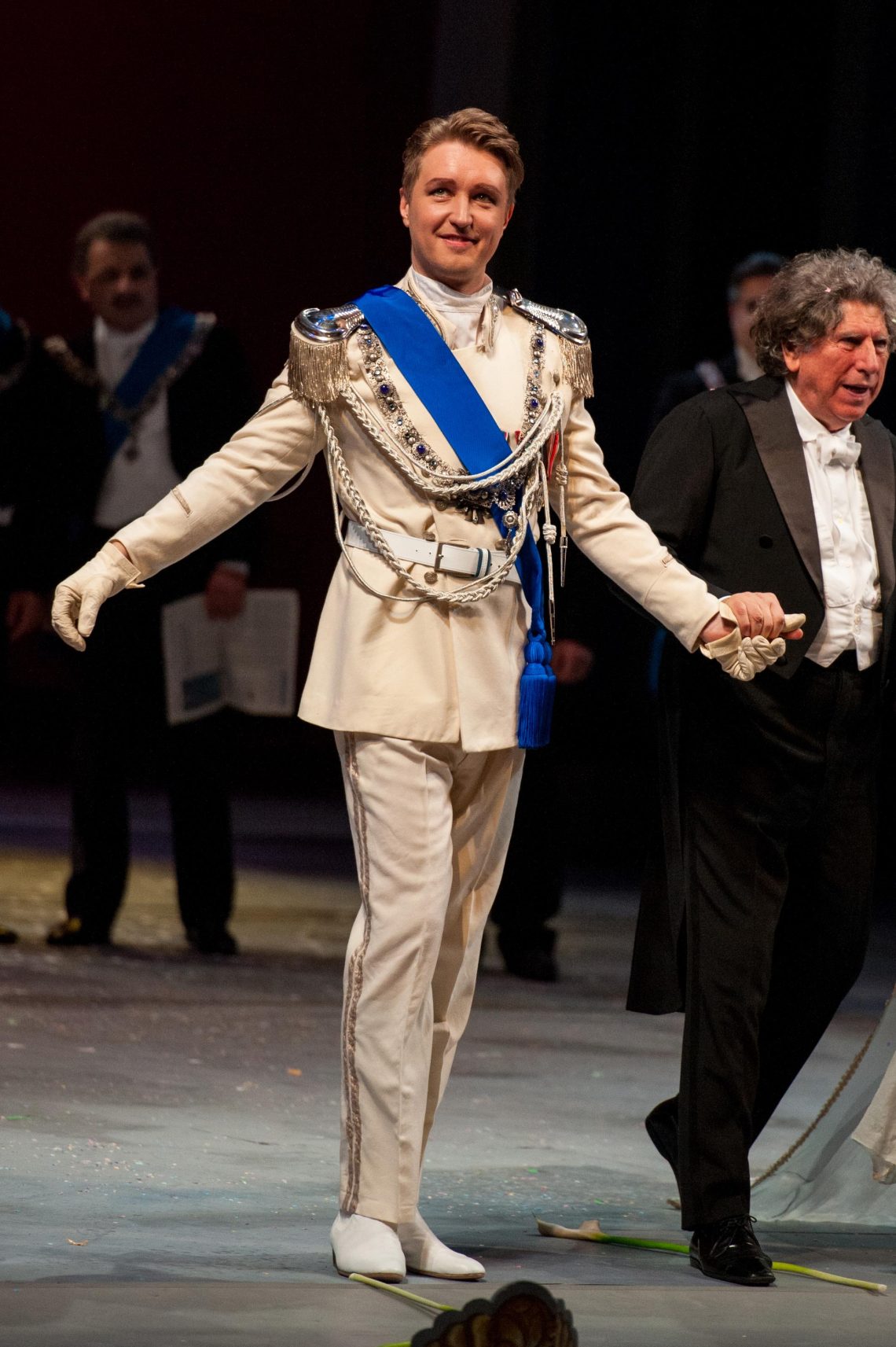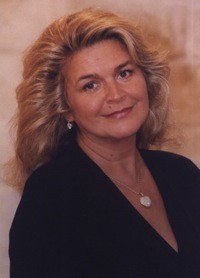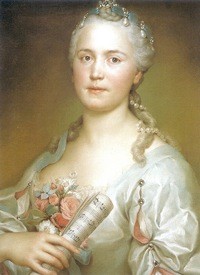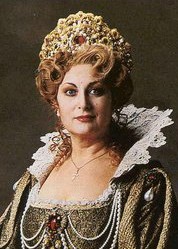
Maxim Mironov |
Maxim Mironov
The beginning of the active development of the international career of one of the most unique tenors of our time, Maxim Mironov, was laid in 2003, when a young performer, at that time a soloist of the Moscow theater “Helikon-Opera”, took second place in the competition “New Voices” (“Neue Stimmen”) in Germany.
The future singer was born in Tula and at first did not think about a vocal career. Chance helped change life priorities. The broadcast of a concert of three tenors from Paris he saw in 1998 decided a lot: at the turn of 2000 – 2001, Maxim Mironov successfully auditioned in Moscow for Vladimir Devyatov’s private vocal school and became her student. Here, for the first time, he falls into the class of Dmitry Vdovin, whose name is associated with the ascent of the performer to the heights of international recognition.
Years of intensive studies with his teacher – first at the school of Vladimir Devyatov, and then at the Gnessin State Medical University, where the promising student entered as a transfer from a vocal school – provide the fundamental groundwork in comprehending the secrets of vocal mastery, which leads the singer to his first achievement – an unusually important victory at a competition in Germany. It is thanks to her that he immediately falls into the field of view of foreign impresarios and receives his first contracts outside of Russia.
The singer made his Western European debut in November 2004 in Paris on the stage of the Théâtre des Champs Elysées: it was the part of Don Ramiro in Rossini’s Cinderella. However, this was preceded not only by studying at a vocal school and college. At that time, the performer’s creative baggage already had one theatrical premiere – “Peter the Great” by Gretry on the stage of the “Helikon-Opera”, in the troupe of which the singer was accepted, while still a student at the school. The performance of the main part in this opera caused a real sensation in 2002: after that, the whole musical Moscow started talking seriously about the young lyric tenor Maxim Mironov. The year 2005 brought him another part in Rossini’s opera, this time in the opera seria, and gave him a rare chance for an aspiring singer to meet the outstanding Italian director Pier Luigi Pizzi in a production: we are talking about the part of Paolo Erisso in Mohammed the Second on the stage of the famous Venetian theater “La Fenice”.
The year 2005 was also marked for Maxim Mironov by enrollment in the summer school of young singers in Pesaro (Rossini Academy) at the Rossini Opera Festival, which, like the festival itself, is headed by Alberto Zedda. That year, the singer from Russia was twice entrusted to perform the part of Count Liebenskoff in the youth festival production of Rossini’s Journey to Reims, and the very next year, in the main program of the festival, he was engaged to play the role of Lindor in The Italian Girl in Algiers. Maxim Mironov became the first Russian tenor in the history of this prestigious festival to receive an invitation to it, and this fact is perceived all the more impressive because the history of the festival by that time – by 2005 – totaled exactly a quarter of a century (its countdown begins in 1980). Shortly before Pesaro, he first performed the part of Lindor at the Aix-en-Provence festival, and this part, which he has repeatedly sung in many theaters around the world, today can be confidently called one of his signature parts.
It was in the role of Lindor that Maxim Mironov returned to Russia after his six-year absence, performing with triumph in three premiere performances on the stage of the Stanislavsky and Nemirovich-Danchenko Moscow Musical Theater (end of May – beginning of June 2013).
To date, the singer permanently resides in Italy, and the six-year-long wait for a new meeting with his inspired and cheerful art turned out to be infinitely long for domestic music lovers, because before the Moscow premiere of The Italian Girl in Algeria, the Moscow public had the last chance to hear the performer in a full-length opera project. an opportunity only in 2006: it was a concert performance of Cinderella on the stage of the Great Hall of the Conservatory.
In the years that have passed since his Parisian debut in Cinderella, singer and actor Maxim Mironov has become a highly experienced, stylistically refined and unusually charismatic interpreter of Rossini’s music. In the Rossini part of the performer’s repertoire, the composer’s comic operas prevail: Cinderella, The Barber of Seville, The Italian Woman in Algeria, The Turk in Italy, The Silk Stairs, The Journey to Reims, The Count Ory. Of the serious Rossini, in addition to Mohammed II, one can name Otello (the part of Rodrigo) and The Lady of the Lake (the part of Uberto/Jacob V). Replenishment of this list is expected soon with the opera “Ricciardo and Zoraida” (main part).
Rossini’s specialization is the main one in the singer’s work: the range of his voice and technical capabilities perfectly meet the specific requirements for this type of performance, so Maxim Mironov can rightfully be called a real Rossini tenor. And, according to the singer, Rossini is that part of his repertoire, the expansion of which is a paramount task for him. In addition, he is seriously passionate about the search for rarities with little repertoire. For example, last season at the Rossini in Wildbad festival in Germany, he performed the part of Ermano in Mercadante’s The Robbers, a part written in ultra-high tessitura especially for Rubini. The singer’s repertoire also includes such a virtuoso comic part as the part of Tonio in Donizetti’s Daughter of the Regiment.
From time to time, the singer makes forays into the sphere of baroque opera (for example, he sang the French version of Gluck’s Orpheus and Eurydice and the role of Castor in Rameau’s Castor and Pollux). He also gravitates toward lyrical French opera of the XNUMXth century, to parts written for a high light tenor (for example, not so long ago he sang the part of Alphonse in Aubert’s Mute from Portici). There are still few parts of Mozart in the singer’s repertoire (Ferrando in “Così fan tutte” and Belmont in “Abduction from the Seraglio”), but this layer of his work also implies expansion in the future.
Maxim Mironov sang under such conductors as Alberto Zedda, Donato Renzetti, Bruno Campanella, Evelino Pidó, Vladimir Yurovsky, Michele Mariotti, Claudio Shimone, Jesus Lopez-Cobos, Giuliano Carella, Gianandrea Noseda, James Conlon, Antonino Fogliani, Riccardo Frizza. In addition to the theaters and festivals mentioned, the singer has performed on many other prestigious stages, such as the Teatro Real in Madrid and the Vienna State Opera, the Paris National Opera and the Glyndebourne Festival, La Monnay Theater in Brussels and the Las Palmas Opera, the Flemish Opera ( Belgium) and the Comunale Theater in Bologna, the San Carlo Theater in Naples and the Massimo Theater in Palermo, the Petruzzelli Theater in Bari and the Semperoper in Dresden, the Hamburg Opera and the Lausanne Opera, the Comic Opera in Paris and Theater An der Wien. Along with this, Maxim Mironov also sang on the stages of theaters in America (Los Angeles) and Japan (Tokyo).





